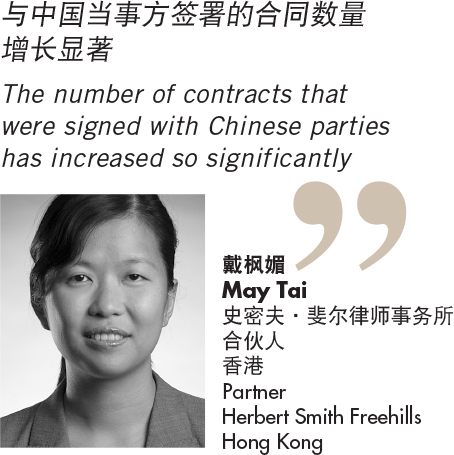More Chinese parties are using legal means to resolve disputes, while foreign parties are becoming increasingly receptive to using China as a dispute resolution platform. Why are more parties agreeing to disagree, both at home and away? Vanessa Ip reports.
Times are busy for litigators and arbitrators. China’s dispute resolution market is evolving and internationalising at a feverish pace, owing to the sheer volume of China-related business around the world and the country’s maturing economy, now the second-largest in the world. Both domestic and international arbitration institutions have been busy updating their rules to stay abreast of market trends. The Supreme People’s Court (SPC) has also been proactive in addressing public and investor concerns through a number of new initiatives designed to bring the country’s legal system further in line with international standards.
More business, more disputes
Observers agree that China’s increasing influence as an economic power is a key driver behind the growth of China’s dispute resolution market. According to Yang Ing Loong, a partner at Latham & Watkins in Hong Kong, “the PRC market is generally maturing, which means that the Western companies doing business in China, the Chinese companies doing business in China, and also Chinese companies doing business outside of China, are all maturing and internationalising at a very quick pace,” he says. Flowing from the increase in China inbound and outbound investments, it’s perhaps inevitable that “there will be more disputes, and those disputes would end up being resolved in China”, says Thomas So, a partner at Mayer Brown JSM in Hong Kong who sits on the council of the Hong Kong Institute of Arbitrators.
May Tai, a dispute resolution partner at Herbert Smith Freehills in Hong Kong, comments: “The number of contracts that were signed with Chinese parties has increased so significantly that only a small percentage of that needs to go to dispute before everyone is very busy with dispute work.”
You must be a
subscribersubscribersubscribersubscriber
to read this content, please
subscribesubscribesubscribesubscribe
today.
For group subscribers, please click here to access.
Interested in group subscription? Please contact us.






















